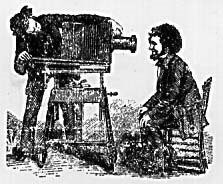Both texts that we read can relate to eachtother as they refered to the same founding fathers and the same texts as the grounds for culture studies. As far as the importance of Britain culture, both mentioned the Hungarian uprising as an important time in Britains culture formation. The difference between the two, perhaps, would be the informational style of writing in the graphic novel and the more "historical" or "dates and facts" style of writing in the reader. After reading both of them it helped to see the important aspects and what to focus on. The New Left played an important role in Britian culture studies, "..the formation of the New Left is seem by many historians as a precursor to cultural studies. The New Left emereged as a British response to the Russian invasion of Hungary in 1956." (Introducing Culture Studies page 39)
Keyword: ELITE..."implies a process of selection- which may be natural, social, or cultural.....When the term is applied to the relations between social groups, there is the further connotation that the few are not just distinguished from, but exercise some form of power over, the many" I chose this word because I have seen in many of our readings and wanted to see its specific link to culture studies.
Wikipedia link: http://en.wikipedia.org/wiki/Hungarian_uprising Here is a link to information on Hungarian uprising. It was brought up in both texts. In a nut shell, there was a nation wide uprising against the Stalinist Government which eventually overthrew the government.
Other link: http://www.newleftreview.org/?page=history Here is a link on the New Left
announcements
This blog was created by and for students in an Introduction to Cultural Studies class at the University of Washington. Through an investigation of urban experience and representation--in theory, in graphic novels and in our own "readings" of Seattle's University District--we considered the formation and history of cultural studies as an (anti)discipline, with a special emphasis on the questions, "What does cultural studies do, and how do you do cultural studies?"
If you'd like to know more about the class, the blog or our U-District artifact project, please contact Gabrielle Dean: gnodean@u.washington.edu.
If you'd like to know more about the class, the blog or our U-District artifact project, please contact Gabrielle Dean: gnodean@u.washington.edu.
Subscribe to:
Post Comments (Atom)
blog archive
-
▼
2008
(92)
-
▼
April
(35)
- Identity in City of Glass
- History of Origins: Race Studies
- History of Origins: Gender Studies
- History of Origins: Gender Studies
- History of Origins: America
- History of Origins: Race Studies
- History of Origins: Gender Studies
- History of Origins: Race Studies
- History of Origins: Race Studies
- History of Origins: Media and Science
- History of Origins: Media and Science
- History of Origins: Gender Studies
- History of Origins: Media and Science
- History of Origins: European Theory
- History of Origins: European Theory
- History of Origins: European Theory
- History of Origins: European Theory
- History of Origins: European Theory
- History of Origins: America
- History of Origins: European Theory
- History of Origins: America
- History of Orgins: European Theory
- History of Origins: European Theory
- History of Origins: Great Britain
- History of Origins: Great Britain
- Cultural Studies in Britain
- Cultural Studies in Britain
- History of Origins: General
- History of Origins: General
- History of Origins: General
- History of Origins: General
- "Orientalism"
- Are You an Author?
- "Paris, Capital of the 19th Century"
- READING: A WEB MODEL
-
▼
April
(35)

No comments:
Post a Comment